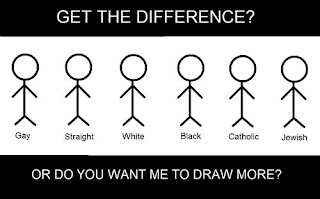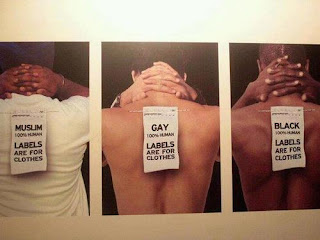People in the U.S. are generally less mobile than those in Europe. Certainly, you can point out a few exceptions: President Barack Obama, singer Amerie, basketball player Kobe Bryant, actor Boris Kodjoe, missionaries, and military members, and so on who have had experiences living long-term abroad. But for most Americans, the biggest move they will ever experience is the one they make when they leave home to attend college. Or perhaps they move across town, across the state, or in more rare occasions across the country. Some estimates say only 30 percent of Americans own a passport, thus even less than that have been out of the country, and even fewer have ventured outside of the North American continent. The concept of remaining in one’s own country is simply unheard of in Europe. Why? Because the European countries are small enough that a two hour drive can launch you across international borders into neighboring countries with different languages and varied cultures.
I believe it is because of our lack of travel experiences that we Americans are particularly comfortable putting simplified labels on other people in an attempt to categorize their background and make assumptions of their beliefs and upbringing. It bothers us when we cannot readily categorize someone — in essence, simplify our understanding of their being. I am not saying Europeans do not do the same thing as well, however, I do believe they are more aware that simple labels do not adequately classify people because they have the opportunity to come across a diversity of people every day. You may say, “America is very diverse! We have so many different ethnic backgrounds that make up Americans.” But that’s just it…at the end of the day we are all Americans with the same primary culture.
In Europe, these simplified categorizations become, well, not so simplified. When you ask a person where he is from, you can expect a variety of answers. Truly, what does that question mean? In the U.S. you will either get a response that articulates where a person was born, where that person grew up, or where that person identifies as home. On rare occasions you may get an answer that deals with lineage to another country. Recently at a Mexican restaurant in Stuttgart-Vaihingen, the owner had the strangest accent that I could not place. My friends and I asked where he was from.
“I’ll give you your meal on the house if you can guess,” he said, “But you’ll never guess.”
I guessed he was a Brit. I would say I was closest, but was I really? He was born and reared in South Africa by parents of English decent. He served in the United States Military, lived in southern California where he learned how to cook Mexican food, and then he moved to Germany for, what else, love. So how is a white South African of English decent who served in the United States military and has lived in Germany for a large portion of his life identified? He didn’t grow up with the same experiences as a British child. He’s kind of South African…but not a Dutch South-African, as he made certain we were aware. According to the article, “Black, White – or South African”, 82 percent of white South Africans identify themselves as South African as opposed to only 44 percent of the black majority of residents there. Yet only 5 percent of white South Africans consider themselves as African. Seems inconsistent right? How can one be South African but not African?
The South-Africa-with-English-lineage-Mexican-restaurant-owner asked how I’d describe where I was from.
That’s been the kicker since I have lived in Germany. Do these people want to assume I’m a tourist and desire to know where in the United States I am from, or do they want to know where in Germany I live, or do they want to know about the origins of my European last name? During a visit to France, a man refused to call me an American. I told him my German & Scottish heritage. African was the only label he would accept. African — as if that label is not complex enough in itself. The Mexican Restaurant owner talked about how he’s called folks back in the United States “African American”, and they corrected him with more accurate labels which influenced him to no longer label people, or to live by the labels incorrectly adhered to him.
The discussion with the restaurant owner led me to recall a student in one of my undergraduate courses who discussed her dilemma whereby she was encouraged to apply for an African-American scholarship. The problem? She was actually only “African”. She emphasized that there was a big difference between African, African-American, and Black American. The cultures, heritage, and traditions are different. That same year, a white South African who earned his American citizenship applied for that same scholarship, causing a stir when it was awarded to him. Some claimed he was more representative of the title “African American” than the intended scholarship target group who were actually black American students who had never been to the continent; yet some refused to accept this pale-skinned man as African even though he lived in Africa for the majority of his life. Perhaps South Africans do not consider themselves as African since others on the outside have a hard time accepting them as such. Is saying that a white person cannot be an African equal to saying that a black person cannot be American or European? How is it different? That was the year I no longer considered myself African American but a Black American.
Then there’s the concept of the Black American vice the American Black which stems from the consciousness of how one self identifies. The differences lie in the distinction of meaning when the words “Black” and “American” are used as an adjective or noun. Is one a Black (noun) who identifies with the world’s collective Black population and you happen to be the American (adjective) representation of Black? Or is one an American (noun) who identifies with America as a whole and happens to be a brown-skinned (adjective) representation of “American-ness”? My college roommate said she thought all the
Jews of the world were united as one until she made a pilgrimage to Israel. She then realized she is certainly a Jewish American and not an American Jew.
Jews of the world were united as one until she made a pilgrimage to Israel. She then realized she is certainly a Jewish American and not an American Jew.
I have two friends whose identities are a patchwork of beautiful culture, birth, and residence. Annie is a first Generation American from Ghana. Bibi is a first generation American from Nigeria. They speak to their parents in Twi and Yoruba respectively. They grew up with African dress, manners, music, family gatherings, and seemed to know everyone from their countries within a 100 mile radius. Annie had both a traditional southern debutant ball as well as a Ghanaian event where she was introduced to society. I have had classmates who were first generation Americans from Senegal and Sierra Leone, they seemed more representative of the term “African American” than me. I identify more with the “Black American” whose roots are so deeply embedded in America’s history that I cannot claim a particular country in Africa, but could certainly lay legitimate claim to origin from countries on the European continent.
In Europe I find more and more intriguing stories of identity like this. Just recently in the Canary Islands someone approached my beau and I. “American Accents!” he exclaimed before asking where we were from. He called himself a native Virginian (but didn’t call himself a Southerner, though he did label me as such.) He said he left a lucrative job as an attorney after being disgusted when he discovered that justice was dependent on income. Instead, he chose a profession as a videographer recording whales and sea life in Spain. His mother was from Tenerife in the Canary Islands, and he held dual citizenship in Spain and the U.S. He spoke with quite a strange accent. He almost sounded British, which made me wonder if he developed his dialect while hanging around the Brits who inhabit the islands, or perhaps his mother was a British Canary Island dweller or a native Spaniard. There he was, a fellow southerner with a complex identity. I wonder if he ever reflects on his unique identity.
One of the most intriguing conversations of my life was with someone with an unclassifiable identity. My beau and I were dining in a fancy French restaurant in downtown Stuttgart (Le Cassoulet you’ve got to try it if you’re ever in the area). Our interest was inexplicably drawn to a party of four at a nearby table. They flowed smoothly in conversation switching back and forth from French to German. My Beau, a mildly talented French speaker, eavesdropped to see what he could understand. Finally, the most verbose of the group had enough wine to break the ice with us. We asked if he was French or German. The three men and one woman in the party chuckled. “Where are we from?” the lady pondered, buying time until she could decide how she would tell the story. The lively man’s German-Jewish parents knew something was heating up in Germany before WWII, they fled to Shanghai just before he was born.
“Why Shanghai?,” I asked.
“Why not?,” was her response.
The West had restrictions on immigration at that time. So the only place to go was east, “and who wants to go to Poland?” the man joked (or so I think). So his family, like many others, went Far East where he spent the first seven years of his life in China. When it was safe to return to Europe, his family settled in France. His first European home was France. Now he is a well-traveled business man who frequents Stuttgart. So where is he truly from, and how does a one-city or one-country response to “where are you from” adequately articulate anything about this man’s experiences?
In The South you’ll often times hear, “Where are your people from?” as if the answer will validate your existence and shed light on your character and what is to be expected of you. Sometimes people will proudly tell you the county or state they hail from or even what schools they attended as if that should tell you all you need to know of them. It’s not uncommon for folks in The South to live on the same family land for generations, so perhaps that question was appropriate many years ago. But since WWII, people have been set in motion and are constantly on the go. Among the hundreds of discoveries I’ve made about myself and the world through my European experience, I am learning that it is less apt to try to define people by where they are from than to get to know their story. Accents, bone structure, skin color, eye shape, language, teeth, and mannerisms can help gauge where a person is from but you’ll miss out on their amazing story if you stop there and don’t get to know them. Although our history forms the building blocks of our collective societal foundation, it’s our personal experiences that completes the construction of the individuals we truly are.
I challenge my readers to venture out and get to know someone’s story; even someone you think you know quite well (like a family member or co-worker with whom you sit beside every day). You may have to build relationships up or break barriers down to get past the “What are your hobbies, how many kids do you have” type questions. Wonderful soul-revealing conversations include discussions of what drives and motivates a person or how they overcome conflict. You might be delightfully surprised to find that your unassuming aunt has stories that offer a depth to who she is, and that could inspire you for years to come.




